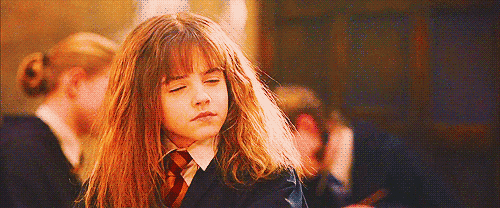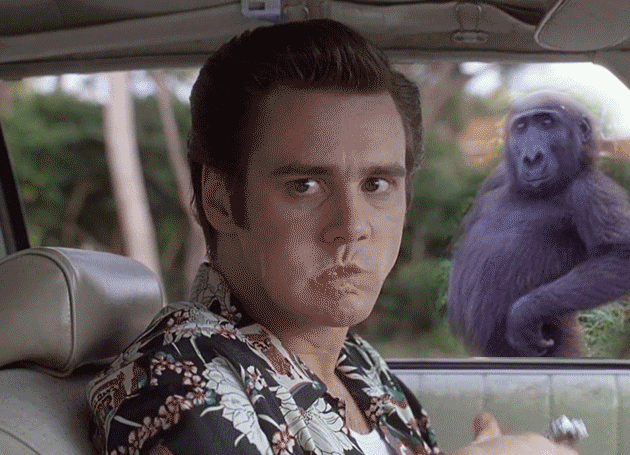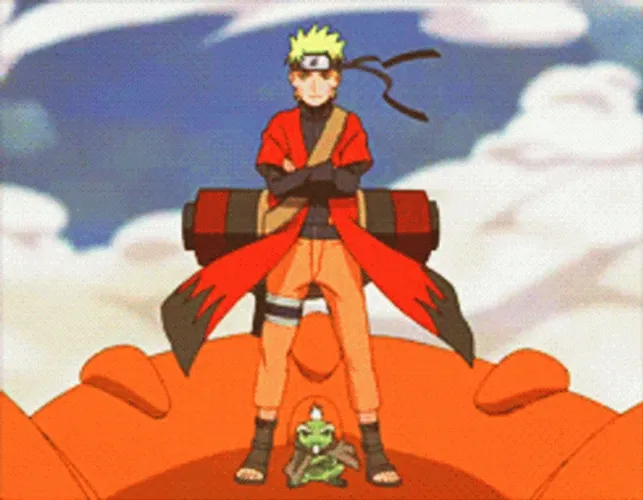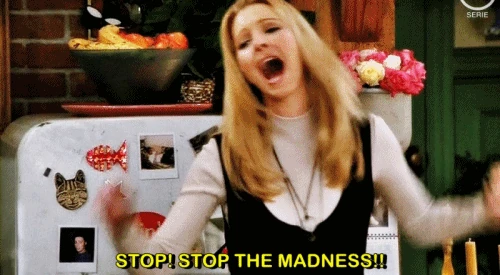I wish the smart-ass, wiseguy metaphors and simile quips within the dialogue were toned down a bit
Sounds a bit like your reading of Catch-22.
I wish the smart-ass, wiseguy metaphors and simile quips within the dialogue were toned down a bit
Sounds a bit like your reading of Catch-22.
That looks amazing!!
“Looking round the room I found there were so many false eyelashes flapping at me that I was beginning to feel a draught.”
Somehow I missed this comment. Is that an actual quote from the book?
The novel does sound a little disconcerting. Did you end up liking Field Grey? (Pardon me. I seem to have begun to dominate this thread. Sometimes I stick a book in this room so I won't forget to finish it, ha ha.) ![]() x
x
I'm starting Lincoln in the Bardo by George Saunders...
Do I now have the original movie/novel completely covered?
So I finished Fifty Shades. I had a lot of nonsense written above earlier, about what I thought mid-novel. But this reviewer says it a whole lot better.
I watched the ACW movie 'Free State of Jones' last night and found it intriguing; not least because it is purported to be based upon true events. How accurately the facts are represented I don't know, but I found myself very interested in the story all the same.
I sat there thinking that with the (up until now, for me) unknown existence 'real' stories like this -- huge stories -- why is so much attention and notoriety placed upon narrow-minded, wobbly, sentimental claptrap like 'to kill a mocking bird?' (But that's another story, and I am up for a Newton Knight V Atticus Finch comparison discussion one day if you have the energy.
I loved Free State of Jones. It's the best movie I've seen in a while. I already want to rewatch it. The scenes in the hospital, with his nephew -- wow. Raw, real, stunning.
I'm skeptical about how much of it is TRUE. So I'll be curious what you think if you read some of those books you listed! I've got the Jenkins one on my list now.
Newt of the film:
- considers the black characters in the story equal to him
- courageous and inspiring
- wife needs him to be there for the family, so he leaves her and marries someone else
- faithful to and defensive of his friends and family (except his wife)
- puts fighting for justice above his first marriage and his son
Atticus of the novel:
- considers himself superior to the blacks, but believes they should have equal rights
- courageous and inspiring
- wife dies, and he refuses to remarry, probably because he married for life
- loves his children and tries to teach them to be better than the world around them
- fights for justice because he wants to set a good example for his children, and because he thinks it's right.
Point goes to...
Newt of the film. HOWEVER, what was the real Newt like...? ![]()
I am reading D. Foy's novel PATRICIDE. I took a class from him. His work is intricate and emotional and beautifully crafted. Anybody else know his stuff? He's a pretty young writer, and his gifts lend a touch of timeless craft, in a literary world that seems muffled by norms and tropes and catch phrases. I appreciate his meticulous use of language.
I've never heard of this author. I see his work is getting some good reviews at Goodreads. ![]()
Do I now have the original movie/novel completely covered?
YES, THAT IS EXACTLY HOW THE WHOLE THING GOES!!
I'm serious. I'm listening to the audio book during my train transit. The reader speaks so slowly (I assume it's intended to be sultry) that I never make it through a full sentence before I arrive at my destination. I've lost my lunch SEVERAL TIMES from subject to predicate.
The Grey guy is a complete tool. He periodically stops all the action in the middle of a scene to tell Ana, "Breathe, Ana," when the girl is simply sitting there thinking moronic thoughts like, "Holy apples! HE IS SO HOT." As a reader, I have (quite obviously) no other option but to sigh at his commanding voice and assume Ana is right: HE IS HOT. I'm saying, compellingly done.
I feel it is compelling case against the modern human condition that this tripe is an international best-seller of mega proportion.
Indeed. I'm reading it because it FLEW off the shelves at the bookstore where I work a couple years ago. As in FLEW. As in, every time I placed one in a customer's hand, she pulled me close and said, "Have you READ THIS. Oh, my!" Uh, no, lady. I haven't.
Well, I want to know what it is people were reading then. It seems to be comparable to an episode of reality TV. Mr. Grey is unbelievably beautiful (apparently) while evincing the personality of a tire pump. Ana is so beside herself with disgust at his arrogant attitude she is left with no other option but to sputter witlessly, endure his many material gifts, and ultimately -- well, I haven't gotten there yet.
There's a legal contract. There is a contract where he seeks permission to whip her and she is supposed to tell him she likes it, and never look him in the eye. And this guy is written as if readers are supposed to forgive him for this weird stuff because HE'S SO TORTURED.
DISTURBING with a capital D. If she actually goes for it (obviously she will) my inner goddess will have many reactions:








I'm reading Fifty Shades of Grey. Apparently this book is supposed to be set in America. The author fills Ana's narrative with odd exclamations no one here has said for decades (as in, they are in the Peanuts comics from the 1970s, and said by cartoons.) Perhaps this is the author's only exposure to American slang. Ana is supposed to be twenty-one, but she speaks like someone much older (and wholly disconnected from current culture). I have to assume this means she is also a time-traveler.
This seems to be the crux of Mr. Grey's mission: he wants to dominate. He wants Ana to submit. I find this cavemannish stance highly original. I still have half the book left, but I assume we're going to find out that Mr. Grey is an alien, or perhaps a Viking who has also time-traveled. Interesting premise.
What are you reading right now?
Just finishing: The Reluctant Fundamentalist by Mohsin Hamid.
Beginning: Waiting for the Barbarians by J.M. Coetzee.
The Reluctant Fundamentalist is decent. I find the way the story is told quite interesting (dramatic monologue.)
I'm thirty pages into Coetzee's novel. So far I find it exquisitely written. It reminds me of your style, Dill. I would recommend the first thirty pages to you. I don't know what comes, however, so would hesitate to recommend it without having read them...
I'm reading both of these for a class. I probably wouldn't have picked up Hamid's on my own, but I'm glad now that I've read it -- especially because I find the style so strange and interesting. It's a Muslim perspective on 9/11: a man from Pakistan is living in America, reaping benefits from our capitalist system, but starts to question what that system is doing to him, after 9/11, as well as contemplating his own reaction to 9/11, and that of the average American's in the context of the violence happening all over the world. There were places in the novel that I found uncomfortable to read, but that's a good thing. In the spirit of not being such an insular American. ![]()
Coetzee? At this point I want to read more of his work. The main character is a magistrate who begins to realize his eyes have been closed to human atrocities. I'm not sure exactly where it's set. It may be a fictional place, but there are references to "the empire." The author is South African. As I was reading yesterday, F, I thought he (this character) could be another contender for Atticus Finch. Wherever the story goes, I have a feeling there will be depth in it. Another map turned upside down. Coetzee's writing is full of feeling without being over-heavy or artificial. It takes its time...
(I just talked to Mom: she says to thank you for the recommendation.) ![]()
I love the way you break down the excerpt to see the way sentence length effects the work as a whole. I'm going to remember that: "poem-format" the paragraph. It's like turning a map upside-down. (Still learning from you!) ![]()
True enough: the shorter sentences move the reader into the more languid passages. It's like White takes a pointer and says, here is where you want to linger. Here is the moment that counts. I think this is also achieved by the move into a second person viewpoint. The shift is subtle but places the reader directly into this moment. It's not experienced through a character, but personally.
The shift into conditional does something too? "For a second you seemed to be falling," quietly shifts into "but then suddenly the rope would begin to catch you..." For the rest of the paragraph, White speaks to the reader hypothetically, sort of like, "You're not here, but you could be." I feel that this makes the passages where the characters actually interact even more real. He effectively says, "If you were here, this is what you would do." Then he gives us actual characters doing what he's just taken us oh-so-close to doing ourselves. (I mean, throughout the rest of the book.) He is basically acknowledging the reader, saying, "Wouldn't you love to play with us? Wouldn't you love to swing on this rope? You are so close." I feel that this makes the fictional world he's created all the more real, because he actually writes the reader into it, and then subtly suggests, "You're not QUITE as real as these characters I've created, because you're not really here. They are. But you would love it here if you were." It's almost as if he suggests that the reader is the fiction, and the characters' world is reality, in the form of a swing the reader cannot QUITE experience, but he or she is very welcome to try.
All quite subtly, and it seems effortlessly, done...
(For the tingle)
Juliet Stevenson reads Virginia Woolf's suicide note
I've read this letter a few times (it doesn't feel quite right to read it, and yet I think it's so beautiful...). I've never listened to it. The reading here really adds to the feeling. Just beautiful.
The film is what I ordered! At my library we can borrow films/music/books. I plan to watch it with her this weekend if the order arrives in time. I already told her about it (a couple days ago), and she said, "Oh, I've heard of that story! Mississippi!" and said she looked forward to the film. I'll tell her the recommendation is from you. x
What are you reading right now?
Just finishing: The Reluctant Fundamentalist by Mohsin Hamid.
Beginning: Waiting for the Barbarians by J.M. Coetzee.
I watched the ACW movie 'Free State of Jones' last night and found it intriguing; not least because it is purported to be based upon true events. How accurately the facts are represented I don't know, but I found myself very interested in the story all the same.
I've never heard of this! Just ordered a copy at my library...
I sat there thinking that with the (up until now, for me) unknown existence 'real' stories like this -- huge stories -- why is so much attention and notoriety placed upon narrow-minded, wobbly, sentimental claptrap like 'to kill a mocking bird?' (But that's another story,
and I am up for a Newton Knight V Atticus Finch comparison discussion one day if you have the energy.
I would love that!
It is indeed, a finely written piece.
I think White wrote it because he was inspired by a spider's web he saw in his barn, and felt that there was a story behind it. The fact that he could take something ugly and sticky like a spider's web and turn it into a work of art and a powerful tool of communication -- words, letters, writing, the power of that. Well, I found it magical and inspiring. And the characters! Talking animals! I completely love animals and barns and pigs, ha ha, truly. And honestly, the idea that a detested and barely noticed spider could be so generous, and transform the life of an animal intended for nothing but slaughter, inspired me. She was barely there, barely noticed by anyone, and had such heart and initiative. The good people behind the scenes. That's what I think of.
"But the effect of her being on those around her was incalculably diffusive: for the growing good of the world is partly dependent on unhistoric acts; and that things are not so ill with you and me as they might have been, is half owing to the number who lived faithfully a hidden life, and rest in unvisited tombs." - George Eliot
xx
No sophisticated word-play or play on words but simple clarity composed with rhythm. The descriptive text in tempo seems to match the action of the rope ride?
Oh, ha! I wrote/analyzed before I read your remarks in full. I see we're on the same page. ![]()
Hello! A long time since we activated this room. ![]()
Simplicity! Is my thought. White doesn't say "the swing made the child fly up and down and feel playful and twirly." He uses the words to create that sensation, without ever over-writing. The feel of falling is created by the repeated sound "down, down, down out of the sky." When he writes near the end in a quick succession "mile a minute," "wind whistling," "eyes and ears," "twist and turn," the feeling is playful, like the repetitive back and forth of the swing conveyed linguistically. He writes in second person so that the reader actually climbs into the swing and experiences the swinging through the reading itself.
White was a student of William Strunk. Together they wrote The Elements of Style, a writing manual I read last year for a class. (White wrote the expanded version. The original was the 1918 text book for Strunk's class at Cornell.)
"Young writers often suppose that style is a garnish for the meat of prose, a sauce by which a dull dish is made palatable. Style has no such separate entity; it is nondetachable, unfilterable. The beginner should approach style warily, realizing that it is himself he is approaching, no other; and he should begin by turning resolutely away from all devices that are popularly believed to indicate style — all mannerisms, tricks, adornments. The approach to style is by way of plainness, simplicity, orderliness, sincerity." - E.B. White
"The line between the fancy and the plain, between the atrocious and the felicitous, is sometimes alarmingly fine. The opening phrase of the Gettysburg address is close to the line, at least by our standards today, and Mr. Lincoln, knowingly or unknowingly, was flirting with disaster when he wrote 'Four score and seven years ago.' The President could have got into his sentence with plain 'Eighty-seven years ago' — a saving of two words and less of a strain on the listeners' powers of multiplication. But Lincoln's ear must have told him to go ahead with four score and seven. By doing so, he achieved cadence while skirting the edge of fanciness. Suppose he had blundered over the line and written, 'In the year of our Lord seventeen hundred and seventy-six.' His speech would have sustained a heavy blow. Or suppose he had settled for 'Eighty-seven.' In that case he would have got into his introductory sentence too quickly; the timing would have been bad." - E.B. White
"No one can write decently who is distrustful of the reader's intelligence, or whose attitude is patronizing." - E.B. White
"Many shortcuts are self-defeating; they waste the reader's time instead of conserving it. There are all sorts of rhetorical stratagems and devices that attract writers who hope to be pithy, but most of them are simply bothersome. The longest way round is usually the shortest way home, and the one truly reliable shortcut in writing is to choose words that are strong and surefooted to carry readers on their way." - E.B. White
I'm not sure I've added anything here. ![]()
corra wrote:"I had known General Lee in the old army, and had served with him ....
Fascinating... who is the narrator here?
Sorry! Ulysses S. Grant. They were meeting to discuss the surrender of Lee's troops.
"I had known General Lee in the old army, and had served with him in the Mexican War; but did not suppose, owing to the difference in our age and rank, that he would remember me, while I would more naturally remember him distinctly, because he was the chief of staff of General Scott in the Mexican War.
"When I had left camp that morning I had not expected so soon the result that was then taking place, and consequently was in rough garb. I was without a sword, as I usually was when on horseback on the field, and wore a soldier’s blouse for a coat, with the shoulder straps of my rank to indicate to the army who I was. When I went into the house I found General Lee. We greeted each other, and after shaking hands took our seats. I had my staff with me, a good portion of whom were in the room during the whole of the interview.
"What General Lee’s feelings were I do not know. As he was a man of much dignity, with an impassible face, it was impossible to say whether he felt inwardly glad that the end had finally come, or felt sad over the result, and was too manly to show it. Whatever his feelings, they were entirely concealed from my observation; but my own feelings, which had been quite jubilant on the receipt of his letter, were sad and depressed. I felt like anything rather than rejoicing at the downfall of a foe who had fought so long and valiantly, and had suffered so much for a cause, though that cause was, I believe, one of the worst for which a people ever fought, and one for which there was the least excuse. I do not question, however, the sincerity of the great mass of those who were opposed to us.
"General Lee was dressed in a full uniform which was entirely new, and was wearing a sword of considerable value, very likely the sword which had been presented by the State of Virginia; at all events, it was an entirely different sword from the one that would ordinarily be worn in the field. In my rough traveling suit, the uniform of a private with the straps of a lieutenant-general, I must have contrasted very strangely with a man so handsomely dressed, six feet high and of faultless form. But this was not a matter that I thought of until afterwards.
"We soon fell into a conversation about old army times. He remarked that he remembered me very well in the old army; and I told him that as a matter of course I remembered him perfectly, but from the difference in our rank and years (there being about sixteen years’ difference in our ages), I had thought it very likely that I had not attracted his attention sufficiently to be remembered by him after such a long interval. Our conversation grew so pleasant that I almost forgot the object of our meeting. After the conversation had run on in this style for some time, General Lee called my attention to the object of our meeting, and said that he had asked for this interview for the purpose of getting from me the terms I proposed to give his army. I said that I meant merely that his army should lay down their arms, not to take them up again during the continuance of the war unless duly and properly exchanged. He said that he had so understood my letter.
"Then we gradually fell off again into conversation about matters foreign to the subject which had brought us together. This continued for some little time, when General Lee again interrupted the course of the conversation by suggesting that the terms I proposed to give his army ought to be written out..."
http://www.bartleby.com/1011/67.html
I've nearly completed Grant's Memoirs. I have the Appendix left.
I'm really glad I read these.
Until Gone with the Wind, Charlotte's Web was my favorite book of all time. I read it over and over. I loved Wilbur and Charlotte. I felt that the web-spinning was magic. I never saw the adaptations: the book was the thing. My mother always encouraged me to read other stories, as did my school (there were many trips to the library from both home and school), but privately I felt that there was no reason to read other books because I'd already found the best one. I felt the same about Gone with the Wind for a long time, until I read Jane Eyre (at a friend's urging: he was astonished I loved to write and had yet to read Jane Eyre, which he felt would be "my book.") After that, I became hooked.
A couple years ago I was feeling a little disconnected and despondent, and I had a sudden urge to read Charlotte's Web again. It had been years, and my childhood copy had long been lost to cross-country moves. I had to have a new copy, immediately. I read it through, and all those old feelings of nostalgia came back, and I felt much better. I love that books can do that. Needless to say I consider Charlotte's Web a friend.
Yes, I know that I’m an idiot
Someone texted me to offer me a ride home the other day, asking, "Are you on the train?" They meant, "Are you still on the train? If so, I can get you at the station so you won't have to take the bus." I said, "Yes, just boarded. Thanks." I meant I'd just boarded the bus, having left the train, so there was no need to pick me up. In my mind, everything is a train, even though it isn't. I thought I'd answered, "Yes, I am on the bus" because in my strange head a bus is also a train, and a train is also a bus. So of course, they went to meet me where I had just left!! And the thing is, I am fully aware of the difference between the words "train" and "bus." It's like the linguistic part of my brain runs it all together, but the common sense part doesn't. So I say train and mean bus and cannot figure out how I confused them. And I leave irritated people in my wake!
I too am an idiot. ![]()
When I was just learning to read, I used to read soda cans, cereal boxes, barbecue sauce bottles -- whatever was on the table at my eye level. I translated "12 fl. ounces" on my parents' soda can as "twelve floral ounces" because I didn't know what the fl. stood for, and floral seemed most probable to me. My siblings corrected me somewhere near adulthood when I had the occasion to read them something aloud with that abbreviation. I had never analyzed the improbability of my assumption that soda was weighed in floral ounces. They laughed and mocked me hardily. I still cannot read that abbreviation without thinking first "floral," and then adjusting myself to the less romantic measurement "fluid."
I'd forgotten until this conversation that I actually own a copy of the novel Sophie's Choice. I just hunted it up.
I have three ceiling-high book shelves, but they're not organized at all. Not by title or author. They're a potpourri of titles thrust here and there where I find a gap. I can never remember what I own in print, but I'm often happily surprised! ![]()
I've also read Dinesen's Out of Africa! I think her writing is beautiful -- so gentle. I have Shadows on the Grass on my list for her. It's a continuation of Out of Africa.
Beautiful clip. They had courage... yes.
I've seen Sophie's Choice several times, but you have me wanting to watch it again. The book is on my to- read list. Meryl Streep is my favorite actress. I think she is phenomenal in Sophie's Choice as well as Out of Africa.